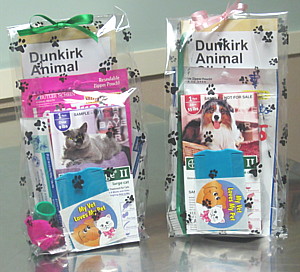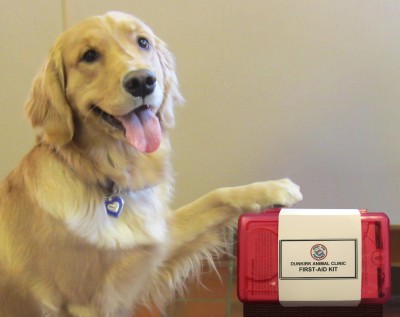The Vaccine Controversy
With the success of immunization programs in the human population, the concern for the risk of diseases has shifted more to the possible risk of side effects from vaccinations. Vaccines are given to a healthy population and we forget how many people have died from diseases that we now have vaccines to protect against.
The same is true in veterinary medicine. Despite this, there are potential reactions or risks from getting a vaccine. In pets, these risks include mild to moderate vaccine reactions and vaccine associated sarcomas in cats. Claims have been made that vaccines can also cause autoimmune diseases but there have been no studies that have proven this. It is believed that the cause of autoimmune diseases is multi-factorial.
A vaccine reaction can be anything from a mild facial swelling to a severe anaphylactic reaction. These reactions are rare, but when they occur they can be treated if caught right when the pet starts showing clinical signs. Clinical signs include hives, itchiness, lethargy, vomiting, facial swelling, pale gums and difficulty breathing. Treatment includes antihistamines and potentially more if the pet is having a severe reaction.
Vaccine associated sarcomas occur in approximately 1 in 1,000 to 1 in 10,000 cats. It is associated with certain vaccines; specifically the rabies vaccine and the feline leukemia vaccine. It is usually a cancerous tumor that requires aggressive surgery and is believed to be linked to a reaction to the adjuvant (carrier agent) in the vaccines.
So what is being done to prevent these problems? Advances have been made in many of these vaccines to eliminate the adjuvant that may be responsible for causing some of these problems. The new vaccines available, called recombinant vaccines, are safer and provide better immunity. The recommended vaccine schedules for cats and dogs have also been revised and most of these vaccines are now given every three years instead of on a yearly basis. Some annual vaccines are still recommended however, depending on the animal’s age and lifestyle.
We at the Dunkirk Animal Clinic believe in doing what is best for the pet population as a whole in our area. As a veterinarian and pet owner I have to weigh the pros and cons and decide what the best decision is regarding vaccines. In our community the diseases we vaccinate pets against have not been entirely eliminated. Therefore, if we recommend discontinuing these vaccines, we are only going to see more and more pets die from these diseases.
In dogs, parvovirus is prevalent in our community and a major cause of death in the young pet population. If your puppy contracts this deadly disease, the cost of treatment is very expensive and there is no guarantee that your puppy will survive. It is much safer and more affordable to get your puppy vaccinated. This includes a series of vaccines starting at 6 weeks of age and given every three to four weeks until the puppy is 16 weeks old. At the Dunkirk Animal Clinic we give yearly vaccines until the dog turns 6 years old and then we recommend the vaccine be given every three years.
In cats, feline leukemia is also very prevalent especially in the stray cat population. If your cat is outdoors, it is very important to make sure your cat is vaccinated on a yearly basis. If your cat is indoors, you can choose whether or not to vaccinate your cat against leukemia. Other diseases we vaccinate against that are still very prevalent in cats include the upper respiratory viruses. These can be contracted even if your cat is indoors.
When bringing your pet to your veterinarian for the first time, ask questions if you are concerned about vaccines. We believe it is important to still vaccinate our pets to prevent diseases that are very prevalent in the pet population. Each vaccine schedule can be tailored to fit your pet’s lifestyle. We recommend the core vaccines in dogs which include the parvovirus vaccine previously discussed, distemper, adenovirus, parainfluenza and the rabies vaccine which must be given by law. In cats, the core vaccines include the upper respiratory viruses (rhinotracheitis, panleukopenia and calicivirus) and the rabies vaccine.
Other vaccines are optional. For example, if your dog is kenneled and groomed where they come in contact with many other dogs, we highly recommend the kennel cough vaccine and the influenza vaccine. If your dog is a hunting dog and/or out in the woods and fields a lot, we highly recommend the Lyme vaccine. If your cat goes outdoors, we highly recommend the feline leukemia vaccine.
Discuss in detail with your veterinarian what your pet’s lifestyle is and we will be able to come up with a vaccine schedule that is best for your pet. We want to do our best to prevent any problems and keep your pet protected to the best of our ability!



